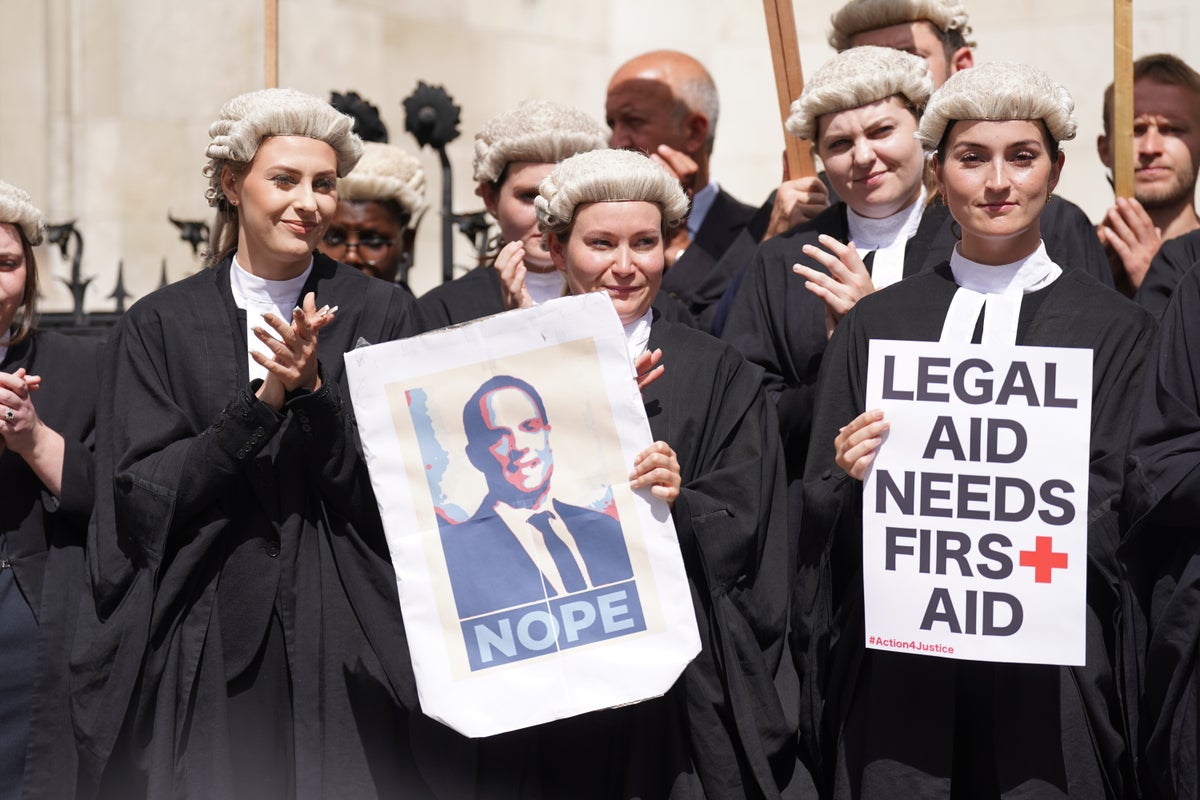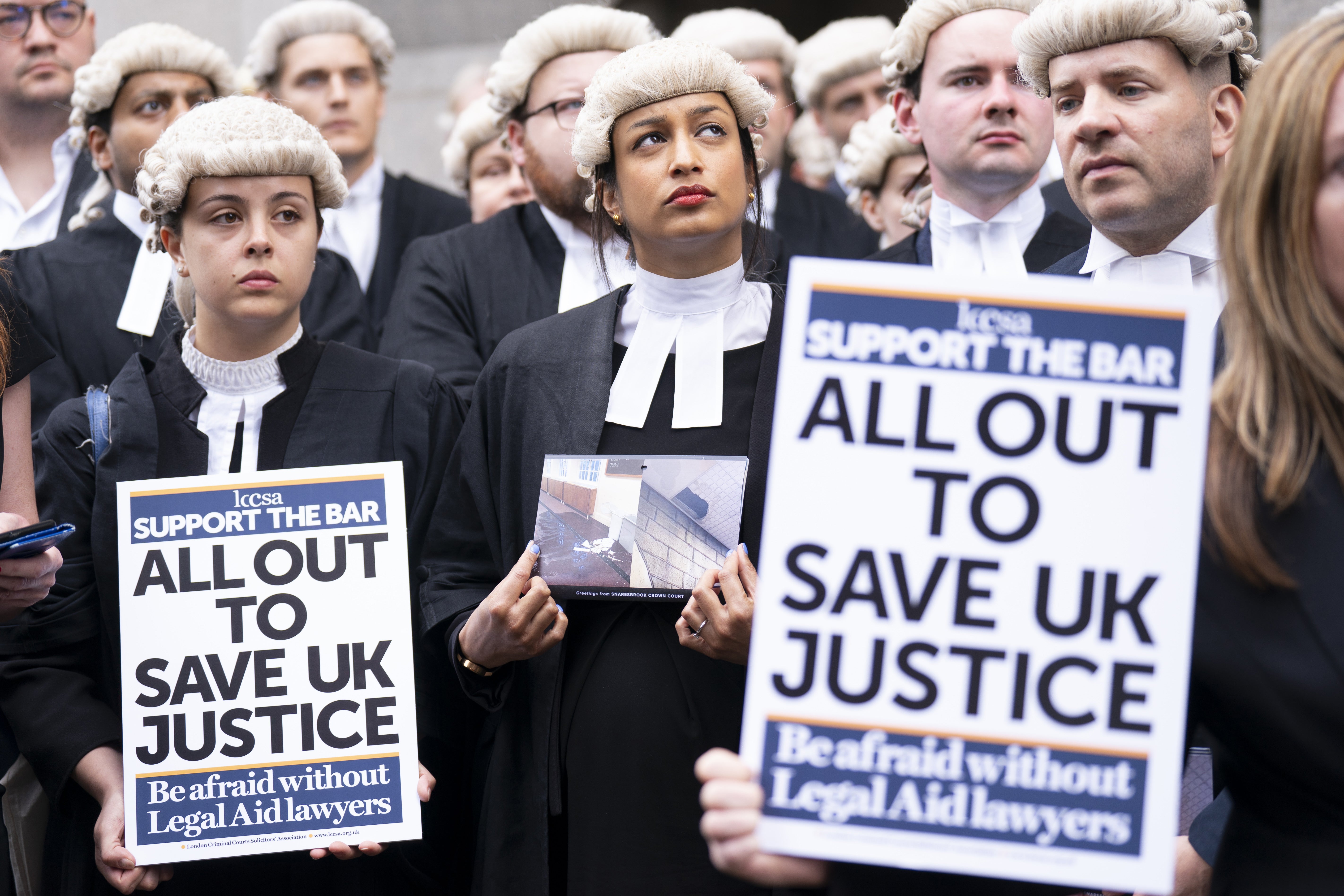
Barristers are threatening to sue the government as their continued strike continues to wreak havoc in crown courts.
The Criminal Bar Association (CBA) has issued a letter to the Ministry of Justice challenging its refusal to backdate an increase in defence fees under legal aid.
A dispute over the scheme, which sees the government pay for lawyers to represent defendants who cannot afford to cover the costs themselves, prompted an ongoing four week strike.
At least 700 court cases were disrupted by the first two days of action last week, and three days of action started on Monday.
Next week will see barristers walk out for four days, and then five, as part of the escalation.
The government has announced that legal aid fees will rise by 15 per cent from September, but the increase will not be retrospective, meaning that fees for the backlog of more than 58,000 crown court cases are paid at old rates.
The CBA argues that the refusal to backdate the increase is “wrong in law” and is proposing a claim for judicial review.
“There is no restriction preventing the altering of fees in respect of work yet to be undertaken,” a spokesperson said.
“It is also not supported by the facts – the Ministry of Justice has previously made changes to fees payable under existing Legal Aid Representation Orders in respect of future work.
“In 2013, a 30 per cent reduction of fees was applied to existing Representation Orders in relation to the most serious, complex and long-running criminal matters.”
An increase to criminal legal aid funding of “at least 15 per cent above present levels” was the core recommendation of an independent review of legal aid that was published in December.
Its author, Sir Christopher Bellamy, said the review had been announced by the government three years previously and that underlying problems had been flagged “for many years before that”.
“There is in my view no scope for further delay,” he added. The CBA said it waited 105 days for a government response to the recommendations and that several had not been adopted.
The CBA said it would await the Ministry of Justice’s response to its letter before deciding whether to proceed with a legal challenge.

Its members will return to work on Thursday, before another four-day strike starting on Monday.
Barristers are expected to protest outside the Supreme Court and crown courts in Birmingham, Preston and Plymouth.
If the Ministry of Justice still does not budge, there will be a strike for the entire working week beginning 18 July, and then on alternating weeks with no end-date.
The CBA said its plans remain under review nad are “subject to the response from the government”.
Addressing the House of Commons on Tuesday, justice secretary James Cartlidge said he wished to engage witht he CBA on the “next stage of reform”.
“We adopted that two-phase approach precisely in order to deliver the initial increase in fees as soon as practicable, and it will be introduced in September: a 15 per cent increase for criminal barristers working in magistrates courts and police stations,” he added.
“We think that that is a very generous offer, and we hope the members of the CBA will think about it and stop their disruption of our courts.”







